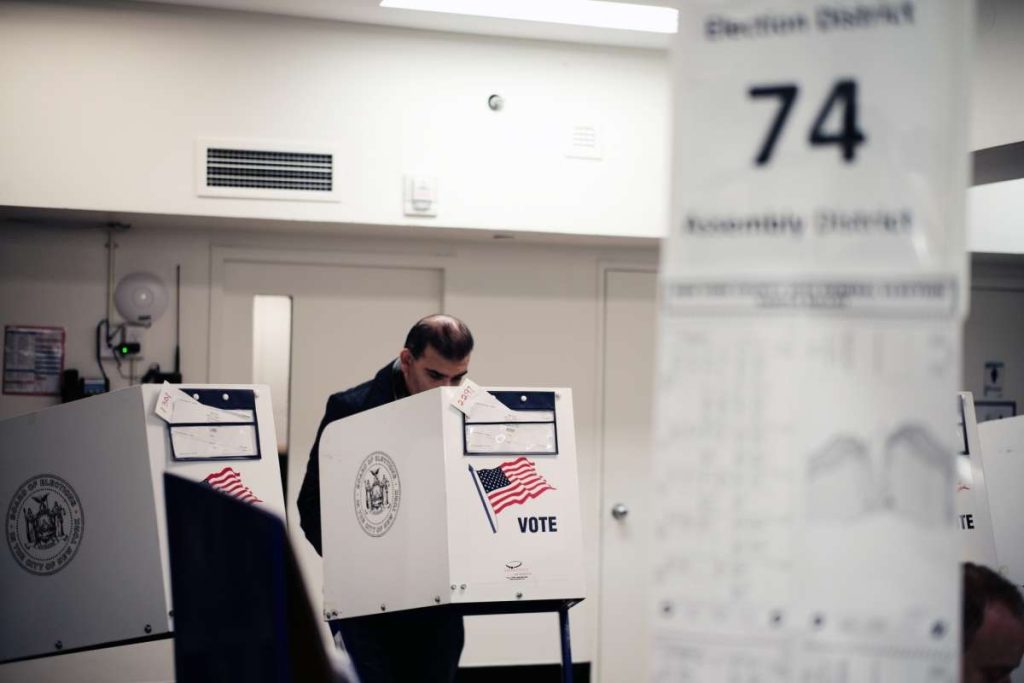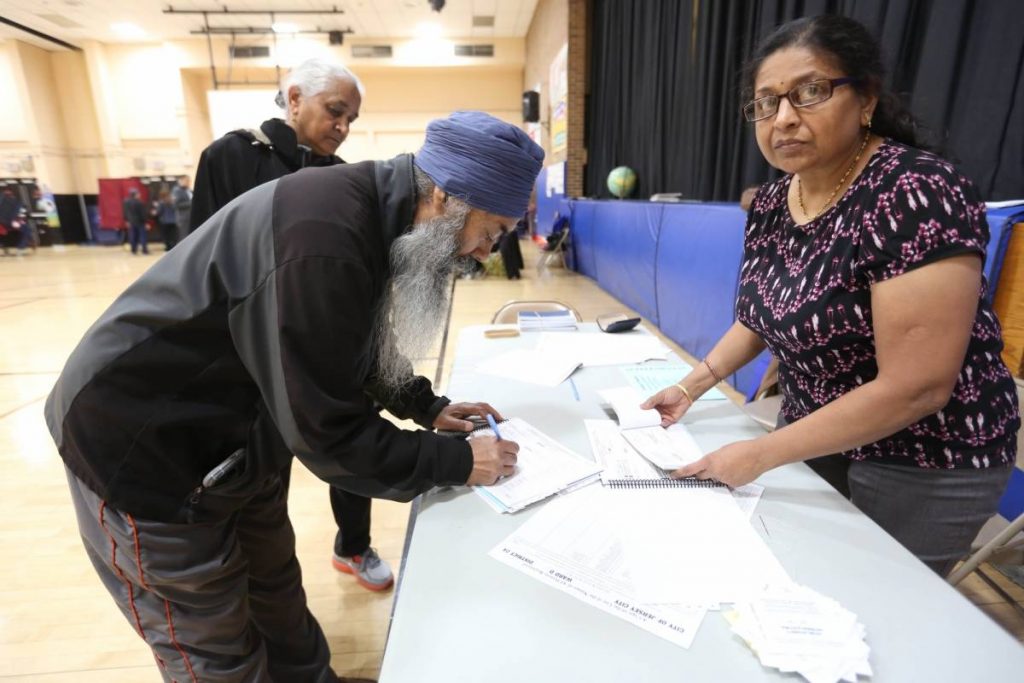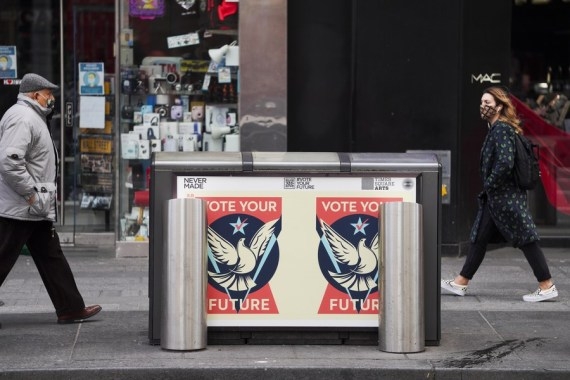There isn’t even a common voting machine for the country and within a state, the machines could vary:..writes Arul Louis
The US does not have a central body to conduct elections and the task is left to a chaotic patchwork of state and local authorities with their own rules and methods.
The Federal Election Commission is only in charge of enforcing federal election campaign laws and not running the elections.
There isn’t even a common voting machine for the country and within a state, the machines could vary: In New York state, the city uses machines from a company called Election Systems & Software, while elsewhere machines from Dominion Voting Systems, a company founded in Canada and has headquarters in Toronto and Denver, are deployed.
However, there is a paper trail for the ballots even when citizens vote at polling booths because voters first mark paper ballots that are then fed into the voting machines to be tallied.
Ballots are available in many languages under the Federal Voting Rights Act.
In some places depending on the size of the community and problems with English, ballots are available in Indian languages, like Hindi in Chicago, Bengali in New York City, Guajarati in parts of New Jersey, and Punjabi in some California areas, among others.
Voters can also request translations or language assistance when ballots don’t include their languages.
The first step in the election process is the holding of primaries where candidates to run in the general elections are selected.

In some states, it is done through separate intra-party elections limited to party members.
But in others the primaries are open and the top vote-getters move on to the general election.
This sometimes leads to two candidates from the same party facing off against each other in the general election rather than having two from opposing parties.
Voting through postal ballots also differs from jurisdiction to jurisdiction.
In Colorado, every voter is sent a postal ballot, which they can post or drop off in ballot boxes in public places.
But in other states like New York, voters have to request postal ballots that have to be posted or dropped off at election offices or polling stations.
By law, federal general elections are set for the second Tuesday in November (and there is no set date for the primaries).
Some states allow early voting at polling booths. In Georgia, it starts four weeks before election day.
Of the about 170 million registered voters in the US, as of Thursday night, 33.24 million citizens had voted, 14 million in person and 19.14 million by post, according to the US Elections Project.
The voter turnouts in the US are low and in the 2020 presidential election, it was only 68.2 per cent.
The minimum age for voting is 18 but procedures for registering is not uniform. Some states make it easy by allowing registration when applying for a driver’s licence.
Some states allow convicted criminals to vote but in others they can be prosecuted if they do.
Rules about voters having to show a photo identification also are not uniform and the Democratic Party opposes the requirement claiming that it discriminates against poor people.
In Georgia, voters have to show such an identification, but in New York they don’t have to (although, ironically, the state requires it for the poor to get free food allocations).
The voting machines at polling booths in most places automatically tally the votes as the ballotting proceeds, but officials can access them only when the polling closes.
They are immediately reported to a centralised location where the results are declared.
If the tally is not so close that absentee ballots can make a difference, the victors are known within hours of the polls closing.
Depending on the procedures used, the absentee ballot tally could be known around the same time or they are counted separately later, like in New York, delaying the final results if the ballot numbers are close.

Under the rules for election contributions, an individual can donate a maximum of $2,900 to a federal candidate per election, although there are loopholes for helping candidates indirectly through political action committees.
Candidates can receive a maximum of only $100 in cash contributions, and that is cut by half if the donation is made anonymously.
States have their own regulations for political contributions to candidates in state and local elections.
The lack of centralisation can have some bizarre effects amid warnings about foreign interference.
The Los Angeles public prosecutor has charged Eugene Yu, the head of Konnech, a software company, that provides software to schedule election workers in the city and elsewhere, in connection with illegally giving access to sensitive data to contractors in China.

Leave a Reply